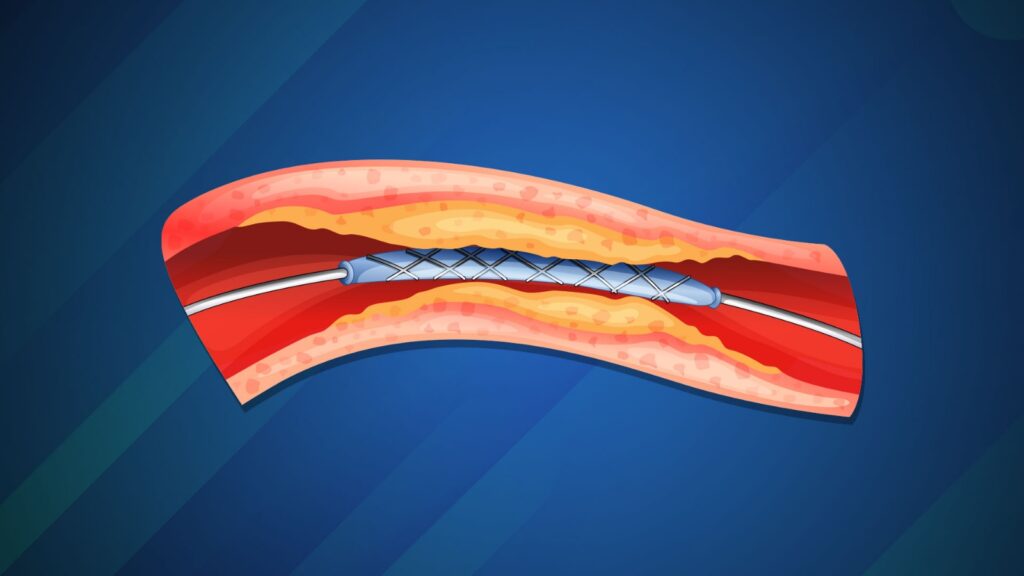Precutaneous coronary intervention (PCI), popularly known as coronary angioplasty, is a procedure that treats coronary artery disease.
A catheter is inserted with a deflated balloon at its tip, into the narrowed coronary artery. Once the catheter is at the point of the blocked artery, the balloon is inflated. This process compresses the plaque buildup and widens the artery, which helps restore blood flow to the heart.
A stent is often used to keep the coronary artery open. Finally, this minimally invasive procedure can help improve the symptoms of chest pain, reduce the risk of a sudden heart attack, and improve blood flow to the heart. Eventually leading to a healthier life for the patient.

Why do cardiologists recommend coronary angioplasty?
Coronary angioplasty is a minimally invasive procedure, that is more affordable and less risky when compared to coronary artery bypass grafting (CABG).
The coronary angioplasty procedure is very effective in treating coronary artery disease by opening the blocked artery; this is done minimally invasively.
The symptoms of chest pain (angina) are improved through a coronary angioplasty; these factors often reduce the risk of a sudden heart attack.
Further, the procedure is cost friendly and very effective, making sure the patients can afford the treatment.
Since the procedure is minimally invasive, the patient’s recovery time is faster, without any severe complications or procedural wounds.
AI in coronary angioplasty has revolutionized the procedure, helping cardiologists detect clots, and blocked arteries more specifically and accurately. This dynamic helps perform
Patients are often discharged after 1-2 days of medical observation, Although the patients lives have improved, following a proper diet and regular consultation can help them live a long and healthy life.

Risks Associated With Coronary Angioplasty?
Coronary angioplasty is a simple, effective, and minimally invasive medical procedure, but that does not mean it is completely safe. It does come with a few risk factors that must be considered.
Coronary Artery Dissection: While the procedure is executed, there is a probability of tares in the walls of the coronary artery. That can lead to complications during the procedure.
Sudden Heart Attack: This is a rare occurrence, but it does happen. A patient can have a sudden heart attack on the table while the angioplasty is executed. Leading to severe complications.
Brain Stroke: As the coronary angioplasty is executed, it can cause blood clots to open up, and travel to the brain. These blood clots can settle in the brain and cause a stroke.
Restenosis: Even after a successful angioplasty procedure, the treated artery can get blocked or narrowed again. This is known as restenosis, and its occurrence can require further medical assistance.
Bleeding: There can be bleeding or bruising, at the site of catheter insertion, most likely in the groin, wrist, or any part through which the catheter is inserted for the execution of the procedure.
Best Coronary Angioplasty in Mumbai?

Symbiosis Speciality Hospital, is one of the best coronary angioplasty hospital in Mumbai.
With its state-of-the-art Philips Cath Lab, and the best team of interventional cardiologists, it is a specialized cardiac hospital based in the heart of the city.
Symbiosis Speciality Hospital, home to the best Interventional cardiologists and cardiac surgeons in the city, is the most advanced, specialized cardiac hospital in Mumbai for treating patients with heart problems.
If you face any cardiac problems, or are looking for an ideal hospital for coronary angioplasty, feel free to get connected to Symbiosis Speciality Hospital and book your appointment today.





